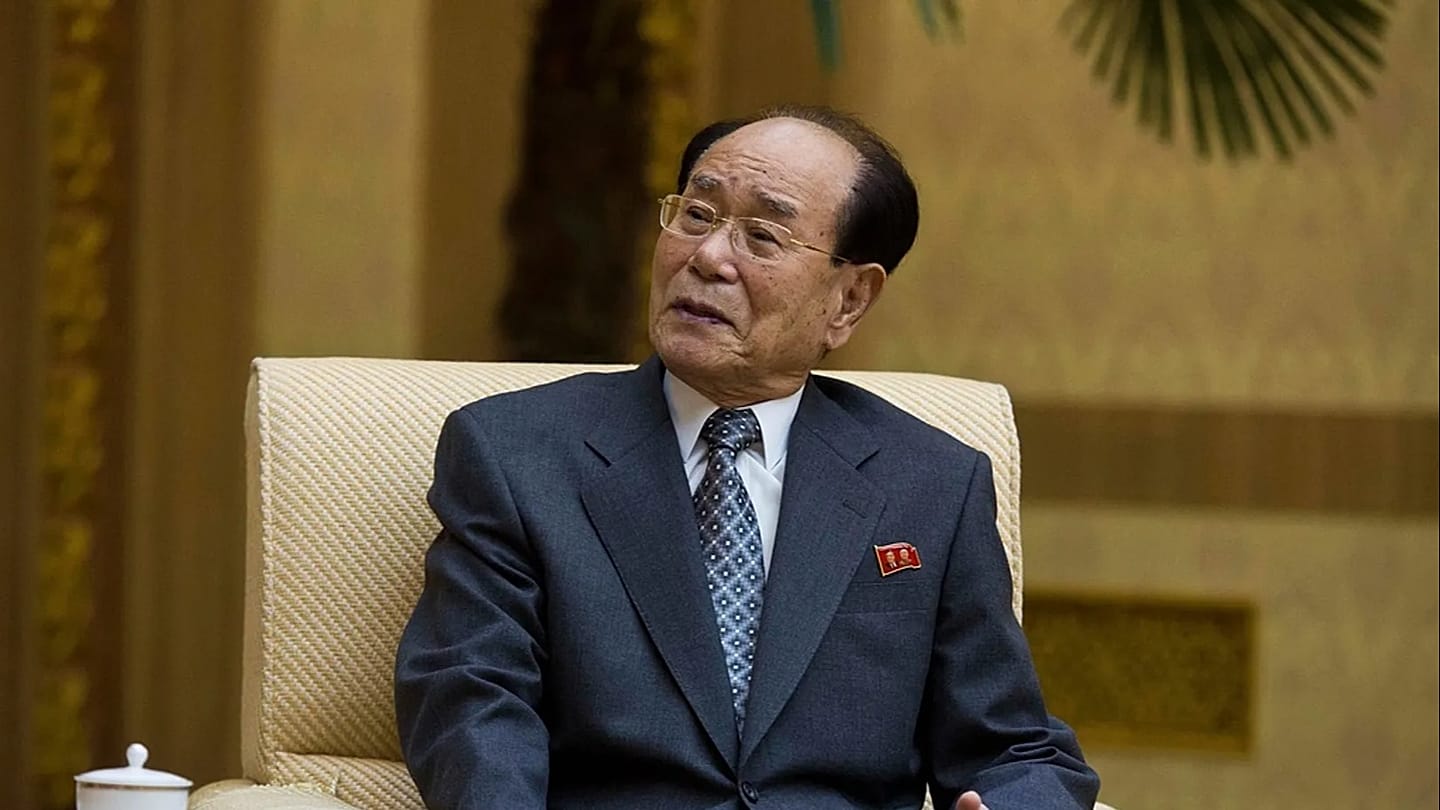North Korea’s ex-ceremonial head of state Kim Yong Nam dies at 97, state media says
Yong Nam's tenure as head of North Korea’s parliament made him the country’s nominal head of state and allowed him to appear frequently in state media greeting visiting foreign dignitaries.
A longtime North Korean ceremonial head of state, Kim Yong Nam, best known for his trademark propaganda-filled speeches with a deep, booming voice in support of the ruling Kim dynasty, has died, state media reported Tuesday.The Korean Central News Agency said that Kim Yong Nam, former president of the Praesidium of North Korea’s rubber-stamp Supreme People’s Assembly from 1998 to 2019, died Monday of multiple organ failure at the age of 97.According to KCNA, the country's leader, Kim Jong Un, paid a heartfelt condolence visit to Kim Yong Nam's grave early on Tuesday.“Comrade Kim Yong Nam faithfully upheld the party’s ideology and leadership and displayed his distinctive competence and experience on the international stage, making notable contributions in the history of our country’s politics and diplomacy,” KCNA said.Kim Jong Un, the third generation of his family to lead North Korea since its founding in 194, is unrelated to Kim Yong Nam.KCNA said North Korea will hold a state funeral for him on Thursday and released a list of 100 funeral committee members with Kim Jong Un’s name at the top.Ceremonial head of state for two decadesBorn in 1928 into “a patriotic family” resisting then Japanese colonial rule of the Korean Peninsula, Kim Yong Nam held a string of top posts since he joined the ruling Workers’ Party in the mid-1950s, according to KCNA.His tenure as head of North Korea’s parliament made him the country’s nominal head of state and allowed him to appear frequently in state media greeting visiting foreign dignitaries.But the true power was held by the Kim family, which maintains absolute control of North Korea’s 26 million people. Kim Jong Un, grandson of state founder Kim Il Sung, took power upon his father Kim Jong Il’s death in 2011 in the country’s second hereditary power transfer.In February 2018, Kim Yong Nam traveled to South Korea with Kim Jong Un’s influential sister, Kim Yo Jong, to attend the opening ceremony of the Pyeongchang Winter Olympics as North Korea sought better ties with South Korea and the U.S. after years of heightened animosities on the Korean Peninsula. At the opening ceremony, Kim Yong Nam and Kim Yo Jong sat within feet of then-U.S. Vice President Mike Pence, though the two sides made no apparent contact.That Pyeongchang trip made Kim Yong Nam the highest-level North Korean official to visit South Korea since 2014. North Korea’s temporary diplomatic openness peaked when Kim Jong Un met U.S. President Donald Trump three times from 2018-19, before the high-stakes summitry collapsed due to wrangling over U.S.-led sanctions on North Korea. Trump recently expressed his desire to meet Kim Jong Un again during his trip to South Korea last week, but North Korea didn’t respond.South Korean Unification Minister Chung Dong-young, a supporter of greater reconciliation with North Korea, expressed his condolences over Kim Yong Nam’s death.“He contributed to opening South-North Korea dialogue by coming to South Korea as head of a North Korean delegation to the Pyeongchang Winter Olympics in 2018,” Chung said in a statement. “I also recall I had meaningful talks with him about peace on the Korean Peninsula and development of South-North Korea relations” during meetings in 2005 and 2018, both in Pyongyang.Kim Yong Nam’s influence was seen as waning due to his age. In April 2019, he was replaced by Choe Ryong Hae, one of Kim Jong Un’s close confidants who had previously served as the top political officer of North Korea’s 1.2 million-member military.


